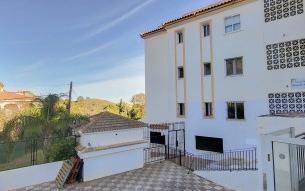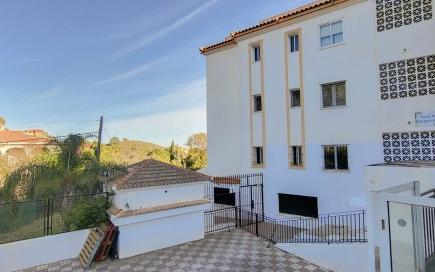
If you’re considering moving to Spain with young children, then understanding the Spanish education system will be vital. Whilst education in Spain is of a very high standard, it is very different from what you might be used to if you’re moving from the UK or the United States. To begin with, instead of starting school the term before their fifth birthday (as is the system in the UK), compulsory education in Spain doesn’t begin until the age of six. That doesn’t mean that your children have to stay at home with you until they’re six: there are a myriad of options available to you, many from when your children are just a few months old.
From kindergarten to Spanish nurseries, and even daycares designed specifically for international children, here’s everything you need to know:
Which Preschool Will Be Right for My Child?
The kind of preschool that you will be looking for for your child will depend on their age. If your child is aged between three months to three years then they will need a nursery school (guarderias). If your child is aged between three years and six years old then they will attend a kindergarten or infant school (escuela infantil). Education at this level (before the age of six) is not compulsory, but you will be in the minority if you don’t access it. According to the OECD, 95% of three year olds in Spain are enrolled into some kind of preschool education.
When looking at preschools, you can choose between Spanish public schooling, which is offered for free to all children aged between three and eighteen, and private schooling. You will pay for private school, but are likely to have more choices and be offered more flexibility around your working hours. It can be difficult to find public preschool options in some areas.
Choosing a Spanish Nursery School
The statutory maternity leave period in Spain is just four months, meaning that many women have to return to work at this stage. This means that it is not uncommon to see babies in Guarderias from four months old. These nursery schools offer a low-cost childcare option, and enrolling your child in a public facility can be a great way to develop their Spanish language skills. If you’d prefer your child to be in an English-speaking public nursery school, you’re likely to find these in areas with high volumes of ex pats, such as in the Costas, Islands, or larger cities.
There is a higher volume of private nursery schools that offer English-language education, but these tend to accept children between the age of two and six, meaning that your options will be more limited if you’re looking for childcare before their second birthday. These private, fee-based nursery schools are often attached to private primary schools, making the transition to the next stage of their educational journey easier for your child.
Choosing a Spanish Kindergarten
You can attend kindergarten (escuela infantil) from the age of three to six in Spain and, although this is not compulsory, almost all children attend. The focus of kindergarten is to prepare children for the school environment and to encourage them to socially integrate with their peers. The main areas of focus during this period will be on improving your child’s communication skills, encouraging their emotional development, and helping them control their movements and body habits.
Your child will also begin learning to read, write and count, but much of the focus will be on play, particularly on team games and creativity. Road awareness will also be addressed, and you may see kindergarteners enjoying outings in their community, tethered together by a rope for safety.
Top Tips for Sending Your Child to Preschool in Spain
Starting preschool is a big step for any child, and this is particularly true for a child who has also recently moved to a new country where they don’t speak the language. As a parent, your role is to try and make the experience feel both safe and happy. There are many ways you can achieve this, including by visiting the school together before the first day, talking about what will happen when they attend kindergarten, and sharing your own excitement at this next step in their development.
Other things you can do to make your child’s transition a successful one include:
- Hungry children are grumpy children, so give your child a good breakfast to start the day right.
- Offer a reward chart or a treat for good behaviour
- Engage your child in conversation about their new friends, and the activities they will enjoy each day
- Ensure your child has everything they need, including their favourite toy and spare clothes (because toilet training accidents can happen, especially when a child is nervous)
- Ensure the school has a full list of emergency contact information, including the child’s doctor and dentist.
- Leave plenty of time: don’t run off to work on your child’s first day. Instead meet their teachers, and stay for as long as your child needs you to settle them.
- Leave if/when the teachers ask you to. Sometimes children settle faster once they’ve said goodbye to their parents.
Are you thinking of moving to Spain? Does the idea of raising your young family, or having a baby, in Spain sound appealing? If you’re looking for estate agents in Southern Spain then why not get in touch ? Our locally based property experts are a font of local knowledge, and are perfectly placed to help you find the home of your dreams.

 English
English Español
Español Deutsch
Deutsch Français
Français Svenska
Svenska Nederlands
Nederlands Italiano
Italiano Norsk
Norsk Русский
Русский


































